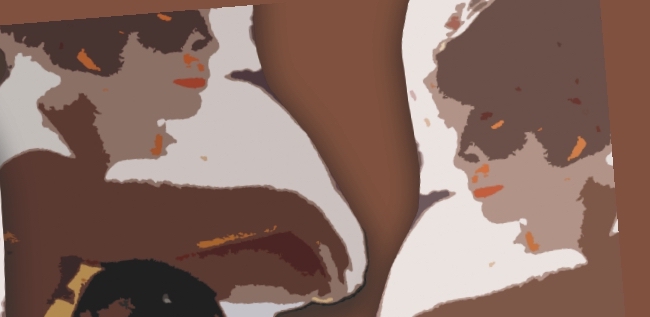Sex and Functional Diversity
Generating praxis from the socio-educational field
DOI:
https://doi.org/10.32093/ambits.vi5750471Keywords:
Functional diversity, Disability, Sexuality, Sex education, EroticAbstract
How can we define sexuality? And the functionally diverse people’s sexuality? Do socio-educational professionals also reproduce stereotypes regarding their sexuality? It is about time all functionally diverse bodies are shown as both desirable and desiring. We are talking about erotic and autoerotic, about desire, pleasure, corporal diversity… Let’s talk about it!
Put it all into words to make it visible and take people’s real necessities and interests, with or without functional diversity. A sex education that goes further than the prevention, STDs, unwanted pregnancies and talks about pleasure and relationships free of taboos, normalizing everyone’s sexuality. Sex education aims to defend human, sexual, and reproductive rights. A sex education that respects its diversity in all its 360º: genre identities and expressions, sexual orientations, diverse sexual and relational practices, body diversity… A sex education that is not exclusively focused on intercourse, genitals, or orgasms. A sex education that lets us understand and enjoy our sexuality privately or with whoever we freely and consensually choose. All in all, from the educational field we bail for a quality sex education where the person is the center, originating from an integral and genre perspective.
References
Art. 25, CDPD, 2006. https://www.boe.es/buscar/doc.php?id=BOE-A-2008-6963
Recuperado del BOE, https://www.boe.es/buscar/act.php?id=BOE-A-2010-351
De Asís, R. (2017) ¿Es la asistencia sexual un derecho? Revista Española de Discapacidad, 5 (2), 7-18.
Foro de Vida Independiente y Divertad (2017): Mis manos, tus manos (en línea), acceso 24 de junio de 2018. http://forovidaindependiente.org/mis-manos-tus-manos/
Garcia, L., Alcedo, M.ª A. y Aguado, A. L. (2008). La sexualidad de las personas con lesión medular: aspectos psicológicos y sociales. Una revisión actualizada. Intervención Psicosocial, 2008, Vol. 17 N.° 2.
Guerra, I. (2021) Lucha contra el capacitismo. Traficantes: Madrid: Traficantes.
Jornadas de “Sexo y Discapacidad” promovidas por el CEDDD durante el mes de Mayo del 2022. https://www.youtube.com/watch?v=38ujx00PxmE&t=3325s
Missé, M. (2018) A la conquista del cuerpo equivocado. Barcelona: Egales.
Moscoso, R. y Arnau, S. (2016). Lo Queer y lo Crip, como formas de re-apropiación de la dignidad disidente. Una conversación con Robert McRuer. Dilemata, 20.
Planella, J. y Pié, A. (2016). Políticas, prácticas y pedagogías trans. Manuelaes, Barcelona: Manuelaes.
Platero, L. y Rosón M. (2012). De “la parada de los monstruos” a los monstruos de lo cotidiano: la diversidad funcional y sexualidad no normativa”. Feminismo/s, 19, pp.127- 142.
Platero, L. (2012). Intersecciones: cuerpos y sexualidades en la encrucijada. Barcelona: Bellaterra.
Roy, Colectivo Na-Morada, Murillo, A.; Labala Rodríguez, A., Romero, T., Manchado, R., Zarekaite, A., Latorre Hernando, L., Garxia, T. y Varela, I. (2019). (h)amor 4 propio. Barcelona: Continta me tienes.
Sánchez, M. (2019). Pedagogías Queer ¿Nos arriesgamos a hacer otra educación? Madrid: Catarata.

Downloads
Published
Issue
Section
License
The authors maintain their copyright and give the right to the first publication of the work to the journal, registered under a Creative Commons Attribution-Non Commercial-NoDerivs license. This license allows others to download the works and to share them with others as long as they credit the author, but it does not allow for any kind of modification or commercial use.














